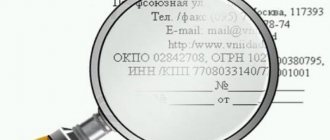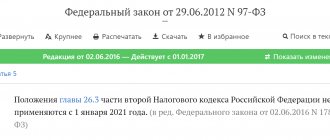- home
- Reference
- Insurance premiums
Private entrepreneurs are required to pay insurance premiums not only for their employees, but also for themselves. The procedure is performed annually, and also based on current details. But if an individual entrepreneur cannot or does not want to make contributions, then he becomes in debt.
Since 2021, the state has been offering businessmen a tax amnesty on fees and insurance premiums, but if an individual entrepreneur cannot take advantage of this relief for various reasons, then his debts will be collected by force.
Who will have their debts written off in 2021?
This year, an amnesty is offered for debt on insurance premiums, both for individual entrepreneurs and individuals. Individuals write off debts for transport, property and land taxes, but this only applies to debt that was incurred before 2015.
Reference! Former entrepreneurs who had debts before 2015 are exempt from mandatory repayment.
For 2021, several reliefs are proposed for individual entrepreneurs, so different types of debts are subject to write-off, which includes debt on insurance premiums. Not only immediate debts are subject to write-off, but also fines and penalties accrued on them.
Based on the amnesty, all legal proceedings regarding the collection of funds from entrepreneurs are terminated. The debt cancellation procedure is initiated by representatives of the Federal Tax Service, so businessmen do not have to prepare any statements on their own.
In 2021, amnesty is offered to the following persons:
- debts on contributions to social funds are forgiven for legal entities;
- persons engaged in private practice receive exemption from repayment of debt on insurance premiums;
- transport, income and property debts are forgiven for individuals and individual entrepreneurs;
- For individual entrepreneurs, an amnesty is additionally offered for contributions to the Pension Fund, Social Insurance Fund and Compulsory Medical Insurance.
Write-offs are made exclusively for debts that were incurred before 2021, if this applies to insurance premiums. Taxes are written off for debts incurred before 2015.
Information about the presence of outstanding debt can be obtained directly from employees of the Federal Tax Service or through the official website of this service. The verification can be performed through the State Services portal if you have an identified account.
It is recommended to contact the bailiffs to find out about the availability of open proceedings in which FSSP specialists have the right to write off funds from the current or personal accounts of entrepreneurs.
It is also useful to read: Mandatory insurance contributions of individual entrepreneurs to the Pension Fund of Russia
Write-off of insurance premiums 2021
Amnesty for individuals who are not individual entrepreneurs is regulated by clauses 1, 3 and 4 of Art.
12 of Law No. 436-FZ. Here the arrears on three taxes must be written off as hopeless for collection: transport, property tax for individuals and land. The “cut-off date” is the same as for entrepreneurs - January 1, 2015.
That is, all debt for these three taxes that was formed before this date must be written off along with penalties and interest accrued on it. Moreover, penalties are written off for the entire time, up to the date of acceptance of the write-off.
At the same time, as noted above, in terms of the “tax amnesty” Law No. 436-FZ does not contain a clause on the non-refundability of amounts paid or collected after December 29, 2021. So if an individual after this date paid (or was collected from him) a debt on transport, land or “property” tax that arose before 01/01/2015, then the paid (collected) amount can be returned or offset against the fulfillment of other tax obligations.
To do this, you must contact the tax authority with a corresponding application. As in the case of the “entrepreneurial” amnesty, the decision on write-off is made by the tax authority either at the place of residence of the individual or at the location of the corresponding taxable object (car, apartment, land plot).
The decision is made in any form, indicating information about the taxpayer and the debt being written off. At the same time, the legislator also did not establish a deadline for making such a decision by the tax authority.
This means that if for some reason the debt needs to be written off quickly, the taxpayer will have to initiate a reconciliation of payments in the manner described above.
2.
Law of December 28, 2021 N 436-FZ introduced amendments to the Tax Code of the Russian Federation regarding the write-off from individual entrepreneurs and citizens of the amounts of mandatory payments recognized as hopeless for collection.
Thus, for individual entrepreneurs, the specified law provides for a tax amnesty for all taxes, except for:
- Mineral extraction tax.
- Excise duties.
- VAT in relation to the movement of goods through the territory of the Russian Federation.
The main work on writing off tax debt is planned to be completed by 03/01/2018.
Also, the specified legal act, instead of a benefit in the form of a tax-free land tax minimum of 10 thousand rubles, introduced benefits in the amount of a tax-free cadastral value of 600 square meters. m (6 acres) of land area for preferential categories of taxpayers (which now includes pensioners).
Debt from individual entrepreneurs and individuals will be written off by the tax authority independently, without prior application from the taxpayer. At the same time, this bill does not provide for the obligation to inform entrepreneurs or citizens about the written-off debt and its amount, in connection with which the individual entrepreneur or citizen will need to independently clarify this information with the Federal Tax Service at the place of registration.
Additionally, it should be noted that the tax amnesty will only affect individual entrepreneurs and citizens; organizations are not included in the list of amnestied persons.
The list of income not subject to write-off will be listed in paragraph 72 of Art. 217 Tax Code of the Russian Federation. The specified income will include the citizen’s profit received:
- in the form of remuneration for the performance of labor or other duties, performance of work, provision of services;
- in the form of dividends and interest;
- in the form of material benefit, determined in accordance with Art. 212 Tax Code of the Russian Federation;
- in kind, determined in accordance with Art. 211 of the Tax Code of the Russian Federation, including gifts received by taxpayers from organizations or individual entrepreneurs;
- in the form of winnings and prizes received in competitions, games and other events.
In this case, we are talking about debt resulting from the write-off of citizens' debts by organizations - for example, telecom operators and banks, clarifies the head of the legal department of HEADSConsulting Diana Maklozyan. According to experts, this amount is about 22 billion rubles.
At a press conference, Vladimir Putin noted that the amount of bad debts of citizens reaches about 40 billion rubles. and affects about 42 million people.
According to the head of the State Duma Committee on Budget and Taxes, Andrei Makarov, this amount is currently approaching 150 billion rubles, and debt write-off is planned for 1 million 34 thousand individual entrepreneurs.
Andrey Makarov: “We have calculated everything, this amount exceeds 150 billion rubles. The President proposed this not because it is impossible to collect, but because it is unfair to collect. Today it is an appeal to tax fairness. This is not only a debt write-off, this is a message that is embedded in setting up the tax system, a decision on which must be made in 2021.”
Summarizing the above, it is worth noting that, on the one hand, writing off debts from individual entrepreneurs will allow this category of taxpayers to return to activities formalized within the framework of the legislation of the Russian Federation, on the other hand, it will not be entirely fair to those individual entrepreneurs who pay on time and in full obligatory payments.
READ MORE: Refund of insurance premium
How debts will be written off and whether honest payers will suffer from this, time will tell.
In relation to individual entrepreneurs, the amnesty applies to:
- Taxes. Individual entrepreneurs apply one of the five available taxation systems (OSNO, UTII, Unified Agricultural Tax, simplified tax system or PSN) and pay tax payments within the chosen tax system. Arrears on any taxes, debt on fines and penalties incurred in connection with such arrears as of January 1, 2015 for individual entrepreneurs and persons who lost their individual entrepreneur status before the date the tax authority made a decision on write-off are recognized as hopeless and subject to write-off (Article 12 of Law No. 436-FZ). The exceptions are excise taxes, taxes that must be paid when moving goods across the border of Russia, and taxes on the extraction of mineral resources - the amnesty does not apply to these payments.
The law does not limit the amount of debt that can be written off.
- Taxes. Individual entrepreneurs apply one of the five available taxation systems (OSNO, UTII, Unified Agricultural Tax, simplified tax system or PSN) and pay tax payments within the chosen tax system. Arrears on any taxes, debt on fines and penalties incurred in connection with such arrears as of January 1, 2015 for individual entrepreneurs and persons who lost their individual entrepreneur status before the date the tax authority made a decision on write-off are recognized as hopeless and subject to write-off (Article 12 of Law No. 436-FZ). The exceptions are excise taxes, taxes that must be paid when moving goods across the border of Russia, and taxes on the extraction of mineral resources - the amnesty does not apply to these payments.
What to do to write off debts
The amnesty is offered on the basis of official orders of the Government, and to write off debt, entrepreneurs do not need to make any applications, prepare documents or contact Federal Tax Service employees.
Attention! The regulations do not contain information about the timing of write-offs, and there is also no information about the duration of the amnesty.
The fiscal authorities of each region independently form a special schedule, on the basis of which the debts of individual entrepreneurs are written off. Errors and misunderstandings often arise, so the individual entrepreneur’s debts are simply not written off.
Therefore, entrepreneurs perform the following actions:
- Initially, your personal account is checked on the Federal Tax Service website, which reflects current and written-off debts;
- if you have any doubts about the existence of an outstanding debt, you can clarify this issue by telephone or during a personal visit to a Federal Tax Service office;
- if necessary, a special appeal is drawn up to representatives of the Federal Tax Service, which contains a request to reconcile debts and write them off as part of the ongoing amnesty.
Such actions help reduce the risk that debts that can be written off by law will have to be repaid yourself.
Amnesty is a measure of support that is offered to entrepreneurs who, when faced with crisis situations, were unable to pay taxes and insurance premiums . But this does not apply to unscrupulous businessmen who hid income or are trying to write off recently incurred debts.
It is also useful to read: Refund of overpaid insurance premiums
How is arrears collected?
If an entrepreneur’s debts do not fall under the amnesty, then he is faced with forced collection of money.
The procedure is divided into several stages:
- If insurance premiums are detected by the tax authority, the Taxpayer receives a special requirement to pay insurance premiums. The procedure is carried out within three months after the discovery of arrears, as indicated in Art. 69 NK. The text contains not only the amount of the unpaid contribution, but also accrued penalties or fines.
- If the individual entrepreneur refuses to pay the fee, then the funds in the entrepreneur’s bank account are withdrawn. The procedure is carried out based on the decision of the management of the Federal Tax Service, for which special instructions are sent to bank employees. Money from the accounts is transferred to the tax office. The decision to collect funds is made within two months after the end of the period given to the taxpayer to repay the debt. To ensure compliance with this decision, all transactions on the accounts are suspended.
- Collection of funds from other property. This process is performed when there is no money in the account. Such a decision is made one year after the expiration of the deadline for fulfilling the requirement for which the individual entrepreneur must repay the debt. For this purpose, a special resolution is sent to the bailiffs. To enforce the decision of the Federal Tax Service, property is seized. Not only property used in the process of work is subject to confiscation, but also personal valuables of the individual entrepreneur.
- A businessman is declared bankrupt. If a citizen does not have money or valuables with which to repay the debt, then representatives of the Federal Tax Service send a bankruptcy case to the court. Based on Federal Law No. 127, the basis for declaring an entrepreneur bankrupt is the inability to meet obligations.
Reference! If bankruptcy proceedings are initiated, then all property belonging to the debtor is used to pay off debts to the state or counterparties.
Tax debts
Tax debts of individual entrepreneurs that can be written off are divided into two groups:
- accrued on income from business activities within the chosen tax regime;
- accrued to an entrepreneur as an individual who has a corresponding object of taxation.
The first group includes the following taxes:
- single on a simplified system (USN);
- single imputed income (UTII);
- unified agricultural system (UAS);
- Personal income tax and VAT (except import) on OSNO.
- patent cost (PSN);
The mineral extraction tax, excise taxes and import VAT when moving goods across the border of the Russian Federation were not included in the amnesty.
The second group includes taxes that individual entrepreneurs pay as an individual:
- transport;
- tax;
- land.
An important condition is that the arrears that accrued on January 1, 2015 are written off, i.e. for taxes for 2014 and earlier years. In relation to these debts, the Federal Tax Service should have carried out timely collection work. And if the tax debt has not yet been paid, then apparently it has already been recognized as hopeless.
Voluntary debt repayment
To prevent the accrual of penalties and fines, entrepreneurs are required to take a responsible approach to their obligations to the Federal Tax Service and other government funds. Therefore, you need to pay an annual fee in the form of insurance premiums. For this purpose, details received from representatives of the Federal Tax Service are used. Information is provided on the website or during a personal visit to the service branch.
Payment orders can be generated through online services, which prevents the possibility of errors. The required values in such forms are inserted automatically, so the correct BCC and account numbers are entered. If you transfer the information yourself onto paper, you can confuse the numbers. This will lead to delays, as well as fines and penalties.
If debts are voluntarily repaid, it is advisable to contact the Federal Tax Service employees along with the check and receipt to provide them with evidence of fulfillment of the obligation. This will allow you to quickly make changes to a special database, so you don’t have to worry about additional fines, seizure of accounts or forced collection of funds.
It is also useful to read: Recalculation of insurance premiums
Bankruptcy of individual entrepreneurs
An entrepreneur has the right to declare himself insolvent by filing a bankruptcy petition with the Arbitration Court. This will allow businessmen to write off debts incurred as a result of commercial activities:
- before the tax authorities and the Pension Fund;
- before banks on loans and borrowings;
- to counterparties: customers, buyers, suppliers, lessors;
- penalties and fines assessed for non-payment of contributions to the budget and extra-budgetary funds;
- personal debt obligations of a citizen registered as an entrepreneur.
When an individual entrepreneur files an application for bankruptcy, all interim measures for enforcement proceedings will be removed. Neither the FSSP, nor collectors or creditors have the right to interact with the debtor regarding the payment of debts until the end of the bankruptcy procedure.
The lack of solvency will be checked by the financial manager, who also manages accounts and assets during the bankruptcy period. Evaluates whether it is necessary to sell all property during bankruptcy, or whether it is possible to restructure the debt and pay off.
Read more about debt relief through bankruptcy here.








